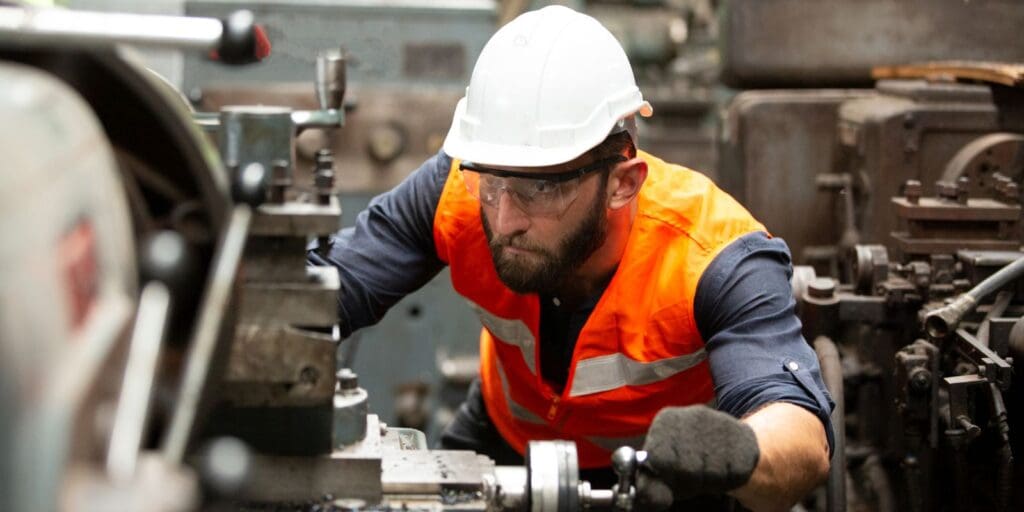FSB Wales has published a new report Manufacturing Momentum on the future of the manufacturing sector in Wales. The report, written by Professor David Pickernell and colleagues at Swansea Business School at Swansea University looks to provide a stocktake of the challenges that firms within the sector have faced in recent years and look at future opportunities, informed by FSB members and manufacturing firms in Wales.
FSB’s earlier research emphasized challenges in energy, transportation, and the recruitment of suitably trained staff. However, our latest report reveals a concerning pattern where these pre-existing issues persist concurrently, creating new barriers to growth as firms are forced to focus on short-term challenges.
Between 2010 and 2022, small manufacturing firms in Wales have seen a reduction of 20%, meanwhile large firms saw an increase in 15%, suggesting that larger firms with the capacity to overcome short term challenges and meet expectations of long-term government policy are at a distinct advantage, over the small firms that make up the majority of the sector.
In addition to already-understood pressures, the research pulls back the curtain on less well understood challenges. The lack of Welsh based supply chains has proven to be a real issue following Brexit, as Welsh firms struggle to remain competitive while battling severe economic headwinds.
Ben Francis, FSB Wales Policy Chair, said: “The manufacturing sector in Wales is unique, in that it reflects the strength and longevity of the Welsh economy as a whole.
The current lack of understanding of the pressures facing small firms is a gap that FSB sought to plug with this report.
Our report includes a series of recommendations based on the experience of our members, which we hope will inform the thinking of decision makers on the future of the manufacturing sector in Wales.
In the short term, we’re calling for decision makers to create certainty where possible, with partners, such as higher education institutions, coming together to address urgent skills gaps, and an assessment of available land and buildings in Wales, to encourage the uptake of underutilized spaces.
Next, in the medium term, energy access, security and affordability will be vital to alleviating the pain Welsh manufacturing small firms are facing. We’re calling for both UK and Welsh Government to prioritise the creation of stronger Welsh supply chains, to increase the resilience of the SME-growth entrepreneurial ecosystem.
For instance, the UK Government’s announcement of a joint investment package with Tata Steel in Port Talbot included £100m earmarked to be distributed by a Transition Board, which we believe should be used to work in partnership with Tata and academic experts to assess and map the supply chain impacts for Welsh firms and the communities they underpin.
Finally, in meeting the long-term sustainability and circularity agenda, manufacturing firms will need to have the space to innovate and look beyond immediate concerns. That’s why FSB is calling for a greater understanding of the immediate challenges the sector is facing, and for Welsh and UK Governments to deliver a fairer provision of finance and support for firms hoping to innovate.
What this report makes clear is that neither government, nor businesses whether small or large can alone deliver on a thriving economy in Wales. It is crucial that partners come together to create the environment in which manufacturing can flourish in Wales.”
David Pickernell, Professor of Small Business and Enterprise Development Policy, and Director of the Research Institute in Innovation and Entrepreneurship at Swansea University University’s School of Management, said: “The Welsh manufacturing sector has undergone significant change over the last decade, and will undoubtedly continue to do so over the next ten years.
New technologies, the growing importance of the circular economy concept, and a business environment shaped by the effects of Brexit, Covid, energy price rises, and global political challenges mean that Welsh manufacturing businesses, the vast majority of which are micro, small, or medium-sized enterprises, face issues concerning supply chains, training and skills, innovation, finance, infrastructure, and sustainability.
Crucially, the research highlights a gap between businesses focused on short-term pressures and the need for a long-term vision, but also that bridging that gap would allow Welsh manufacturing businesses to place themselves on a more resilient footing. Central to this is the building of skills to prepare for future opportunities.
Development of the Welsh entrepreneurial ecosystem, involving both government at all levels, and Higher Education institutions, in collaboration with business in Wales, is crucial to this, and Swansea University generally and the Research Institute in Innovation and Entrepreneurship stand ready to fully support this important agenda.”

